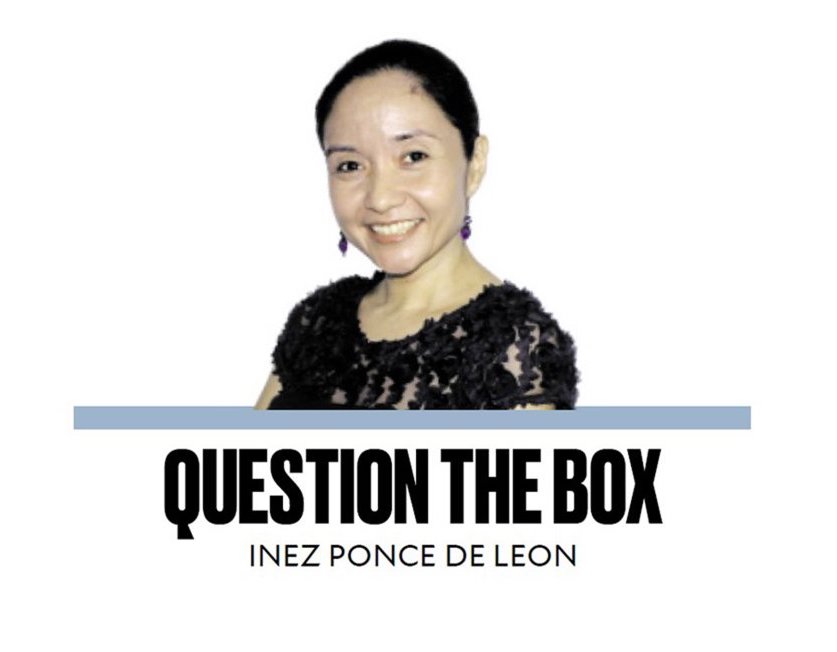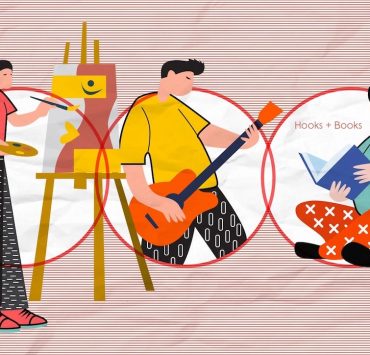No mere decorations

Right before Holy Week, I was part of the March of Women, and a member of a panel that the Ateneo de Manila University’s Sanggunian (student government) put together to commemorate Women’s Month. Their project hoped to bring together women in the Ateneo community in what was a kapihan, or coffee-and-conversation session, which would help students understand the many facets of women empowerment.
I was there as a representative of science communication, though I wasn’t quite sure how exactly I would approach it as a woman who had lived through both science and communication (i.e., the bench and the social sciences).I had grown up in a family of strong women who were not afraid to speak their minds. I had also been raised in a female-centric basic education environment: In St. Scholastica’s College Manila, we were taught a wide variety of subjects that ran the range of beginner calculus and embroidery, basic philosophy, and social dance. I competed in interschool math competitions and interclass debate competitions. It was all right for a woman to do anything and everything, as long as we were women for others, as long as we did things well.
Everything we were learning, everything we found ourselves doing, our teachers said, would help us be independent and make decisions even when we lived alone later on. I was also socialized into a female-centric science: all but a handful of our batch of molecular biology and biotechnology (MBB) students at the University of the Philippines Diliman were women.
After I graduated with my bachelor’s degree and went on to teach at the same institute, I was surrounded by women scientists and students, some of whom became well-known researchers, doctors, and lawyers years later. I was earning my master’s degree in MBB at the same time, and I consulted with women, was advised by women, mingled with women at research conferences.
At Purdue, this time in the social sciences, I worked alongside women: I interviewed women scientists for my dissertation, was a student to women researchers from a variety of fields, heard my own professors extol women philosophers, thinkers, policymakers.
There were snags in this woman-imbued fabric, however. There would, on occasion, be a family member who would utter something inane and misogynistic; a parent telling their daughters to give up and just prepare to be married; the occasional reader dismissing my views as knee-jerk or uninformed.
To these, I would offer eye rolls, silent treatment, and encouragement for the frantic daughter hell-bent on pursuing a career.
I wasn’t sure how I could contribute to the Ateneo forum when I had felt rather lucky to have come up against only a few anti-women creatures for which I had no response.
What I heard at the forum made me angry.
When the main panel discussion was over, each discussant was assigned to a table, where we were supposed to talk to students about their experiences in navigating a world that wasn’t friendly to women. I thought that I would end up with a silent table; but what resulted was a discussion on how my students had been treated at school, how their growth had been stunted, how their abilities had been undermined.
One student’s story stood out. Like me, she had been a mathlete, and had competed in a wide variety of contests, won them, earned recognition for her high school. When the time came for the school to pick a representative for an international contest, she was bypassed in favor of a boy—one who had barely any contest experience to show.
“We would have sent you,” the coordinator had told her, “But this isn’t a beauty contest.”
Never would I have dreamed of hearing such an evil thing said about a woman who achieved so much—not in my family, on the penalty of ostracization, not in my school where we had been pushed to compete, not in my universities where we were all seen as intellectuals. Never would I have dreamed of hearing something as pathetic today, after the #MeToo movement.
The entire table had its own stories, and they were appalling, but they shared the theme of a societally driven obsession with women as mere decorations. This does not bode well for our young women: it appears that not only are the youth preoccupied with their appearances online, those who supervise them see them as mere appearances, representations of their sex rather than representatives of their abilities.
Are we still surprised that many of our young people are focused on criticizing appearances rather than substance when those supposedly wiser than them value appearances at the behest of brains? What a pathetic country we must be if we lay the crowns only on the heads that walk upon idealized bodies!
At the end of the forum, we had no solution but to laugh at the ignorant, who pushed their insecurity on others, who labeled people with broad brushstrokes. For what, indeed, are they, but the much-talked-about crabs that want to pull down anyone more successful than they have ever been, or will ever be?

















